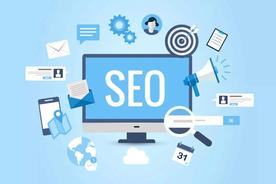In the ever-evolving landscape of online business, two prominent Strategies often stand at the forefront of discussion: Affiliate Marketing and Digital Marketing. While both are essential components of a comprehensive marketing mix, they differ significantly in their approach, execution, and outcomes. In this detailed comparison, we aim to unveil which strategy reigns supreme by dissecting their core elements, advantages, and potential drawbacks.
Understanding the Fundamentals
Before diving into the comparison, let's establish a clear understanding of what each term encompasses. Affiliate Marketing is a performance-based model where businesses reward affiliates for driving sales or leads. This is a referral system where affiliates promote products or services using unique tracking codes, earning a commission for every successful transaction or action taken by users they direct to the merchant's website.
On the other hand, Digital Marketing is an umbrella term that encompasses all forms of marketing efforts that utilize digital channels. This broad category includes email marketing, content marketing, social media marketing, search engine optimization (SEO), pay-per-click (PPC) advertising, and much more. Digital Marketing aims to reach and engage audiences across digital platforms, whether to drive brand awareness, lead generation, or direct sales.
The Core Differences
The primary distinction between Affiliate Marketing and Digital Marketing lies in the nature of the relationship with the customer and the way results are achieved. Affiliate Marketing is based on a partnership model where external parties—the affiliates—perform the marketing tasks. In contrast, Digital Marketing is typically executed in-house or through agencies, with the brand being directly responsible for its campaigns.
Cost and Risk
One of the most compelling arguments in favor of Affiliate Marketing is the cost-effectiveness. Businesses only pay for actual results, such as sales or leads, mitigating upfront costs and risks associated with traditional advertising methods. Conversely, Digital Marketing campaigns often require an initial investment, whether it's creating content, running ads, or optimizing SEO. The return on investment (ROI) can sometimes be uncertain until the campaign concludes.

Control and Branding
Digital Marketing offers businesses complete control over their messaging, branding, and customer experience. Every aspect of the campaign can be tailored to fit the company's voice and values. With Affiliate Marketing, there's a degree of relinquished control since affiliates have freedom in how they promote the product or service. This can sometimes result in inconsistent branding and messaging across different affiliate platforms.
Scalability and Reach
Affiliate Marketing has the potential for exponential scalability because it harnesses the collective efforts of multiple affiliates. As more affiliates join the program, the reach expands naturally. Digital Marketing campaigns, particularly those relying on organic methods like SEO, can take longer to achieve widespread visibility but offer more consistent growth over time.
Targeting and Personalization
Digital Marketing allows for highly targeted campaigns, leveraging data analytics to reach specific demographics, behaviors, and interests. Personalization is key in digital strategies, enabling marketers to craft individualized experiences for consumers. While personalization is possible within Affiliate Marketing, it may not be as sophisticated due to the distributed nature of the efforts.
Flexibility and Diversity
Digital Marketing is known for its flexibility and diversity of tactics. Campaigns can be adjusted on the fly based on performance data, and different strategies can be employed simultaneously. Affiliate programs, while still offering some flexibility, typically follow a more straightforward commission structure and may not allow for as nuanced changes mid-campaign.
Long-Term Strategy
Digital Marketing efforts, such as SEO and content creation, contribute to long-term asset building for a brand. These assets continue to provide value over time, improving the brand's online presence and domain authority. Affiliate Marketing focuses more on immediate returns and may not contribute as significantly to long-term brand equity.
Integration and Synergy
It's worth noting that Affiliate Marketing and Digital Marketing are not mutually exclusive. Many brands successfully integrate them, allowing affiliates to leverage digital Marketing Tactics for their promotions. This synergy can amplify the overall effectiveness of both strategies.
Conclusion: The Dominant Approach
So, which one reigns supreme? The answer isn't as straightforward as it seems. Both Affiliate Marketing and Digital Marketing have their place in the sun. A business's choice between the two should be guided by its goals, resources, and target audience. For rapid expansion and low upfront risk, Affiliate Marketing shines brightly. However, for brands seeking complete control over their marketing narrative, long-term asset building, and a diversified marketing approach, Digital Marketing takes the crown.
Ultimately, the 'superior' strategy is subjective and depends on the context of each individual business. Strategic marketers will find success by combining elements of both Affiliate Marketing and Digital Marketing, carefully curating a blend that maximizes their strengths and addresses their unique challenges.
评论列表 (0条)